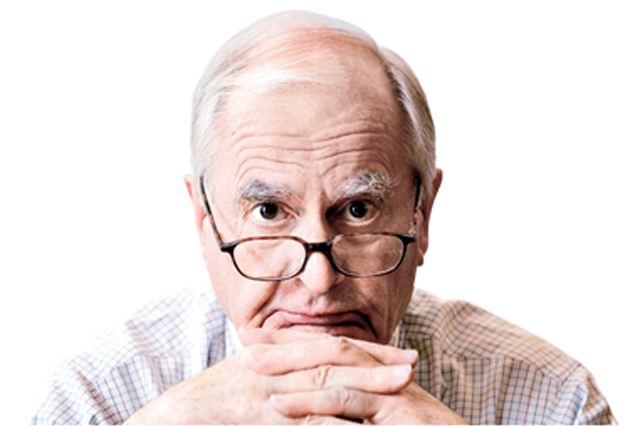Dear Jeremy, Apparently, every marketer worth their salt now has a mission to make their brand ‘meaningful’ and have a ‘purpose’. Should I really be trying to apply this approach to the solvents category (I manage a glue brand)?
Every new advertising agency claims to have identified some fundamental change in human attitudes and behaviour that necessitates the application of a radically different approach to all consumer advertising – and one that they just happen to have invented. Paradigm shifts and tectonic plates feature in their mission statement.
Conference speeches and catch-penny books are equally extreme – it’s 13 years since Sergio Zyman wrote: "In this book I’m going to tell you in a very hands-on way how advertising died, what killed it and what we’re going to have to do to revive it."
The arrival of something called the digital landscape has been greeted with rapture by the revolutionaries. Everything that came before must go; all must now change. If "new" is advertising’s most potent word, then advertising itself must be seen to be pulsating with newness.
In fact, of course, as any dispassionate examination of advertising over the past 100 years will reveal, there have been absolutely no dramatic new insights or approaches that have been equally applicable at all times to all brands. Not one. And nor will there ever be. (If you haven’t already read Paul Feldwick’s wonderful The Anatomy Of Humbug, then do so immediately.)
It’s certainly true that certain brands in certain markets should seriously consider aligning themselves with issues wider than the brand’s primary function. It’s more than ten years since the launch of Dove’s "campaign for real beauty" and it’s still the most referenced example. But, even then, there was nothing dramatically new about the approach; it was just dramatically well done.
In 1958, Courtaulds was recruiting executives and we tested several copy angles. Most concentrated entirely on pay and prospects – but we tried out one with the headline: "Too many people: too little land." It told how the increasing use of man-made fibres freed up precious cotton-growing land for the cultivation of food, much to the benefit of mankind. It was the winner by miles.
If a brand fits comfortably into a wider context, and one with which people sympathise, it can make social and commercial sense to forge that connection. But to suggest that every brand should have a greater purpose, should be meaningful, should spearhead some commendable cause is simply silly. (For one thing, there wouldn’t be nearly enough commendable causes to go round.)
I did, however, spend a pleasurable moment or two wondering just how you might apply this belief to the solvents category. And the best I could come up with was this: in this age of superficiality, fickle fashion and promiscuity, you could espouse and champion the virtues of constancy, loyalty, fidelity, reliability and dependability; all seriously underrated human qualities – and epitomised, of course, by your noble glue.
In fact, come to think of it…
I’m a marketing manager who has been offered a job at our ad agency. I don’t know of many who have made a similar transition but it seems to me like advertising is full of more interesting people than my world of FMCG marketing. Do you have any advice?
You’re probably right about the people. People in advertising agencies know only too well that they’re vulnerable suppliers in a greatly oversupplied market and therefore dependent, at least to some extent, on being engaging company.
You, on the other hand, so far in your career, have been in possession of something even more telling than an engaging manner: the chequebook. When one person holds the chequebook and the other person doesn’t, true partnership is impossible.
When you join an agency, you leave the chequebook behind – and you’ll be startled to discover just how naked you feel. In any disagreement over creative work, budgets, personnel or the interpretation of research, you’ll be wholly reliant on your knowledge and your persuasive skills. Your client (just as you do now) can simply say: "Because I say so."
If you can live with that, then go for it.
Jeremy Bullmore welcomes questions via campaign@haymarket.com or 北京赛车pk10, Teddington Studios, Broom Road, Teddington, TW11 9BE


